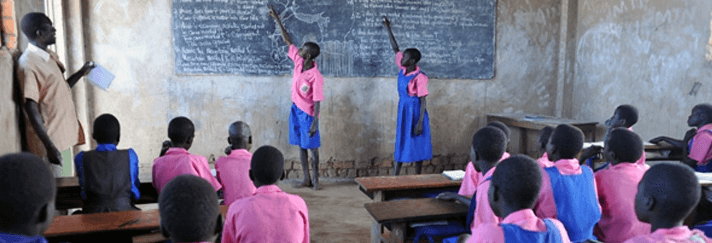Educational materials in Kenyan classrooms still portray old stereotypes of “boys as heroes and girls as weak,” says the executive director of the Forum for African Women Educationalists (FAWE).
“The current methods of teaching carry a lot of gender bias to the boy,” FAWE Executive Director Hendrina Doroba told the Kenyan newspaper The Star in a recent interview.
Doroba outlined the efforts of FAWE, which is the 2008 recipient of the Henry R. Kravis Prize in Nonprofit Leadership, to empower school-age girls across the African continent. That includes depictions of women in picture- and textbooks, which FAWE has been able to address thanks to several successful partnerships.
“We engaged with the Kenya Institute of Curriculum Development … vigorously and they looked at removing some of the pictures and set up a committee to ensure books are gender responsive,” Doroba explained.
The organization has also teamed up with teachers to “improve their gender pedagogical skills” as well as their awareness and compassion for the circumstances of young female students.
Founded in 1992, FAWE’s mission has been to educate and empower an estimated 24 million school-age women in sub-Saharan Africa. Over the past 22 years, FAWE has expanded its operations into 32 African countries. Despite the organization’s progress, however, Doroba acknowledged that there is still much work to do, many obstacles to confront that are not always obvious. Schoolbook gender bias, for example, can be very subtle even though it leads to more disruptive situations, including school-related gender violence, she said.
Doroba’s interview with The Star also reports on the organization’s other efforts to improve educational opportunities. Such improvements are not only beneficial to each individual young woman, Doroba said, but have a stabilizing effect on the society around each of them.
“Girls have a right to education. We need to provide for their needs,” she said. “If you educate a girl, you educate a community.”
RELATED STORIES:

